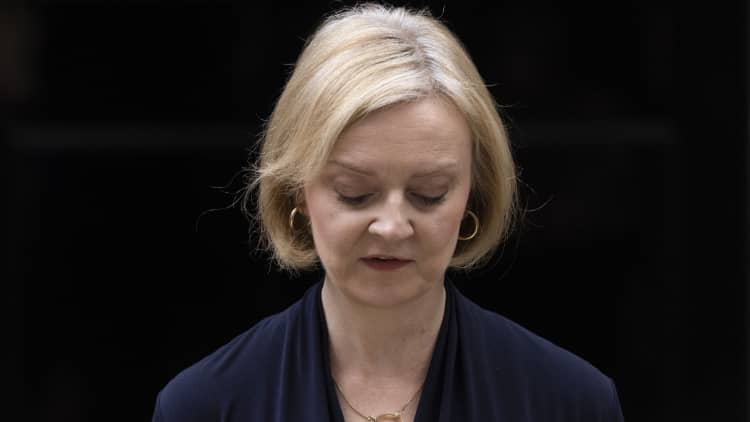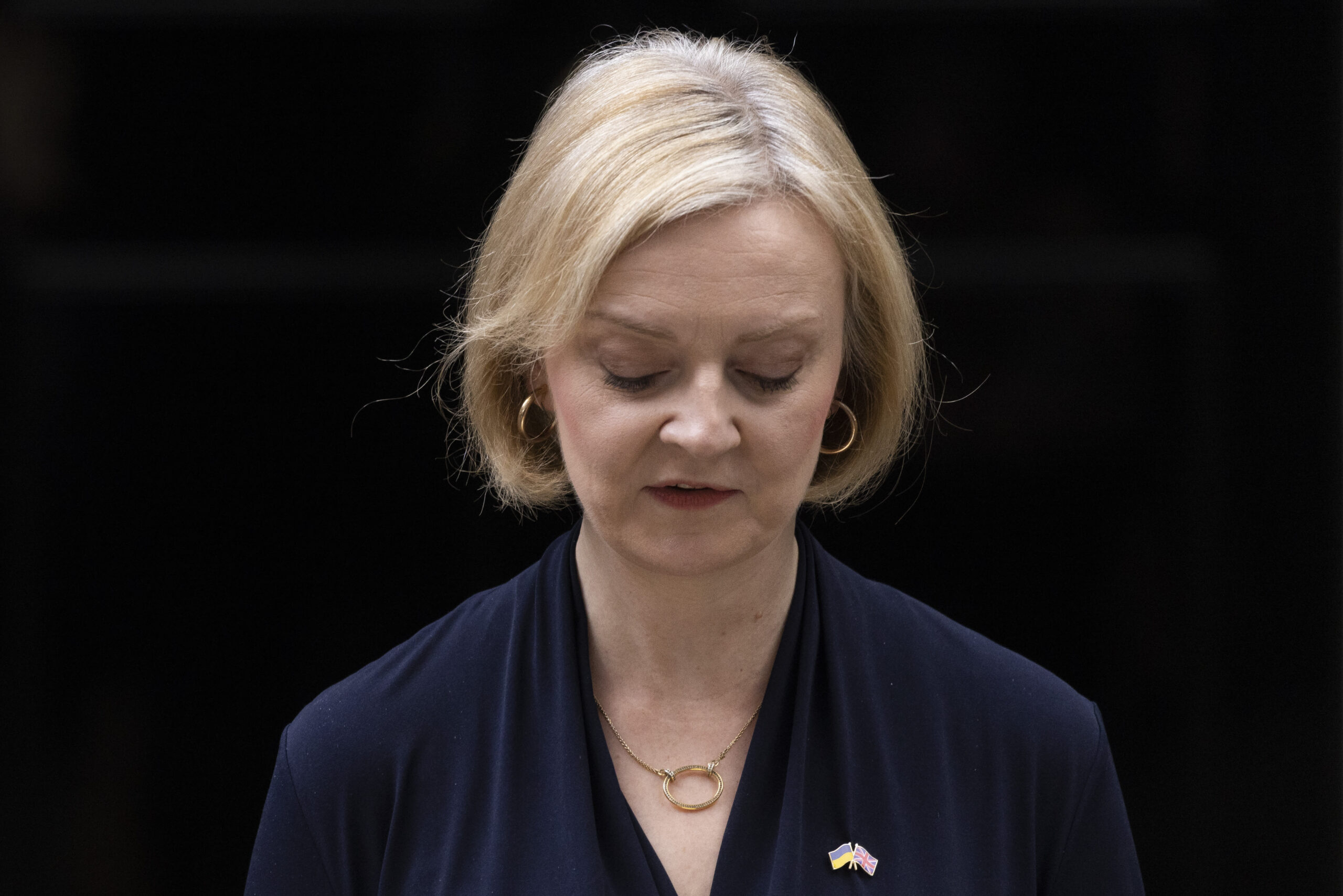British Prime Minister Liz Truss attends a news conference in London, Britain, October 14, 2022.
Daniel Leal | Reuters
LONDON — The new U.K. government is on Thursday set to propose legislation to prevent “significant uncosted measures” from being announced without an analysis of their impact on public finances.
The Labour government, which took power from the Conservatives earlier this month, said the Budget Responsibility Bill would introduce a “fiscal lock” ensuring that any government announcement making “significant and permanent tax and spending changes” would be subject to an independent assessment by the Office for Budget Responsibility.
The OBR would be able to produce its analysis at the time of its choosing, according to notes on the bill released Wednesday.
The notes contain a veiled reference to what became known as the British “mini-budget crisis” under former Prime Minister Liz Truss and ex-Finance Minister Kwasi Kwarteng.
Shortly after taking up their posts in early September 2022, Truss and Kwarteng announced a raft of tax cuts in an unscheduled fiscal announcement that was described by analysts as “seismic.”
Truss said the measures would reboot the country’s sluggish economic growth — but markets balked at the potential scale of the increased U.K. deficit, along with the lack of measures announced to offset the reduction in tax revenue.
The British pound tumbled to an all-time low against the U.S. dollar after the measures were aired, while the sell-off in U.K. government bonds was so severe that the Bank of England staged an emergency intervention.
Both Truss and Kwarteng resigned over the turmoil after less than two months in their respective offices, and the majority of the measures were reversed.

The new Labour bill will “reinforce market credibility and public trust by preventing large-scale unfunded commitments,” the notes say, and “prevent significant uncosted measures from being announced without sufficient scrutiny to mitigate the impact on the public finances.”
Finance Minister Rachel Reeves drew the connection to Truss in a statement Thursday.
The fiscal lock “means that never again can there be a repeat of Liz Truss’ mistakes, where she crashed our economy, sent mortgage rates soaring, and left working people to pay the price. It means accountability,” Reeves said on social platform X.
CNBC has reached out to Truss for comment.
Lindsay James, investment strategist at Quilter Investors, told CNBC of the Budget Responsibility Bill: “While it’s potentially a helpful signal to investors who for a time ascribed something the industry termed a ‘moron premium’ to UK gilt yields, checks and balances such as these are not infallible.”
The definition of a “significant” change is unclear, while the OBR’s forecasts have been questioned in the past — such as its forecast of 1.9% real gross domestic product growth in 2025, ahead of economists’ expectations of an expansion of 1.3%, James said by email.
“However, despite its imperfections the signal is clear – this government, in recognising the fragility of the gilt market, is firmly holding to fiscal guidelines. In turn this puts a straitjacket on spending and more pressure on economic growth to deliver much needed public funds,” she added.
EMEA Tribune is not involved in this news article, it is taken from our partners and or from the News Agencies. Copyright and Credit go to the News Agencies, email news@emeatribune.com Follow our WhatsApp verified Channel





